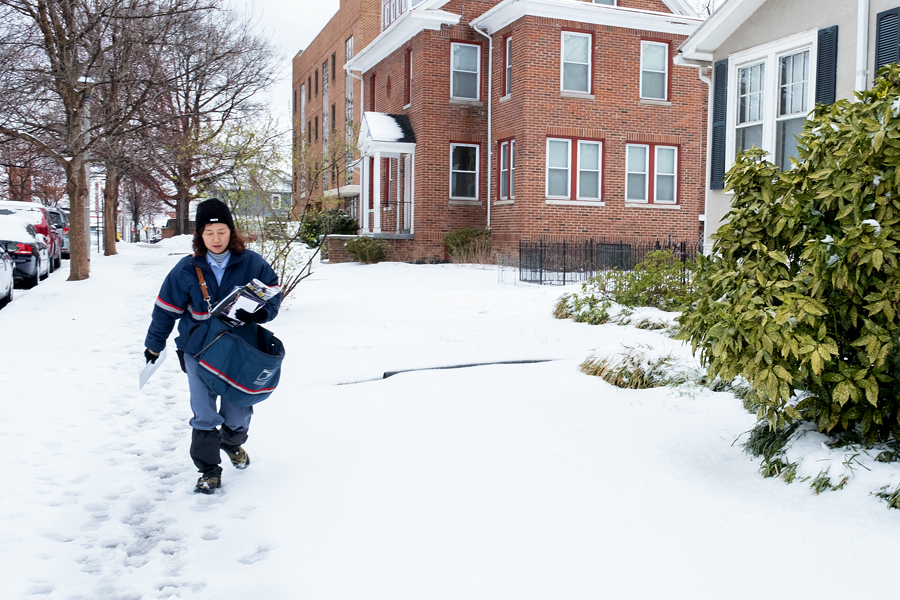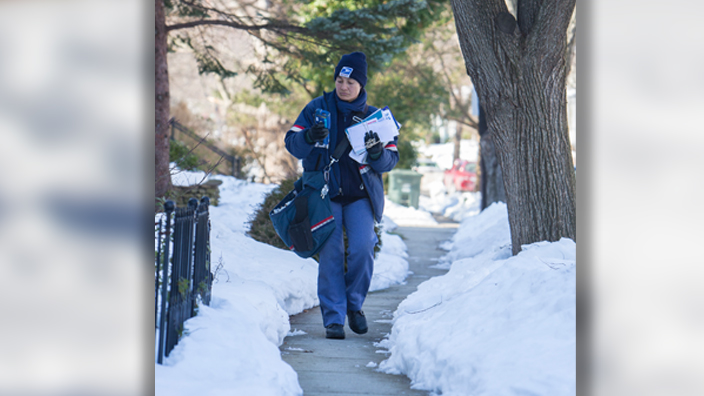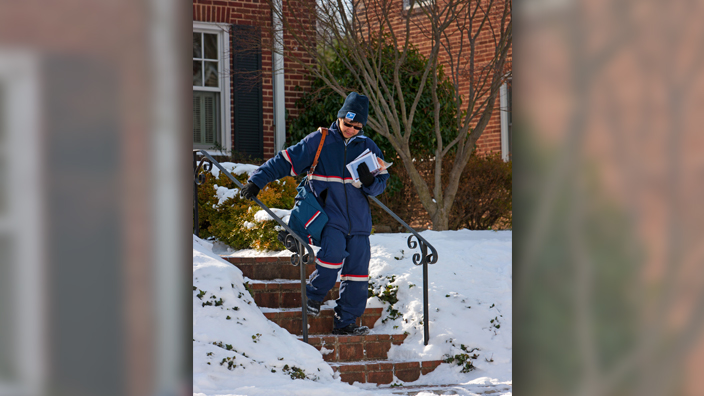The Postal Service wants employees to take precautions to avoid frostbite, hypothermia and other winter health hazards.
Here’s what you should know:
• Frostbite occurs when skin and the underlying tissue freeze after being exposed to extreme cold for long periods. The fingers, toes and feet are most commonly affected, but other extremities such as the nose, ears and cheeks can also develop frostbite.
• At the first sign of frostbite, get out of the cold. Unless absolutely necessary, don’t walk on frostbitten feet or toes. Don’t rub the frostbitten area because it will cause more damage.
• Warm the affected area using body heat or by immersing in warm water; avoid using a heating pad, heat lamp or the heat of a stove, fireplace or radiator for warming because direct heat can burn damaged tissue.
• Drink warm beverages to replace lost fluids. In case of severe frostbite, seek medical attention.
• Hypothermia, which occurs when the body loses heat faster than it can be produced, can be deadly if you don’t catch it in time. Signs include memory loss, slurred speech and drowsiness.
• If you experience symptoms of frostbite or hypothermia, call 911 immediately and notify your supervisor.
The Safety Blue page has more information, including Safety Depends on Me! videos on working in winter weather.


